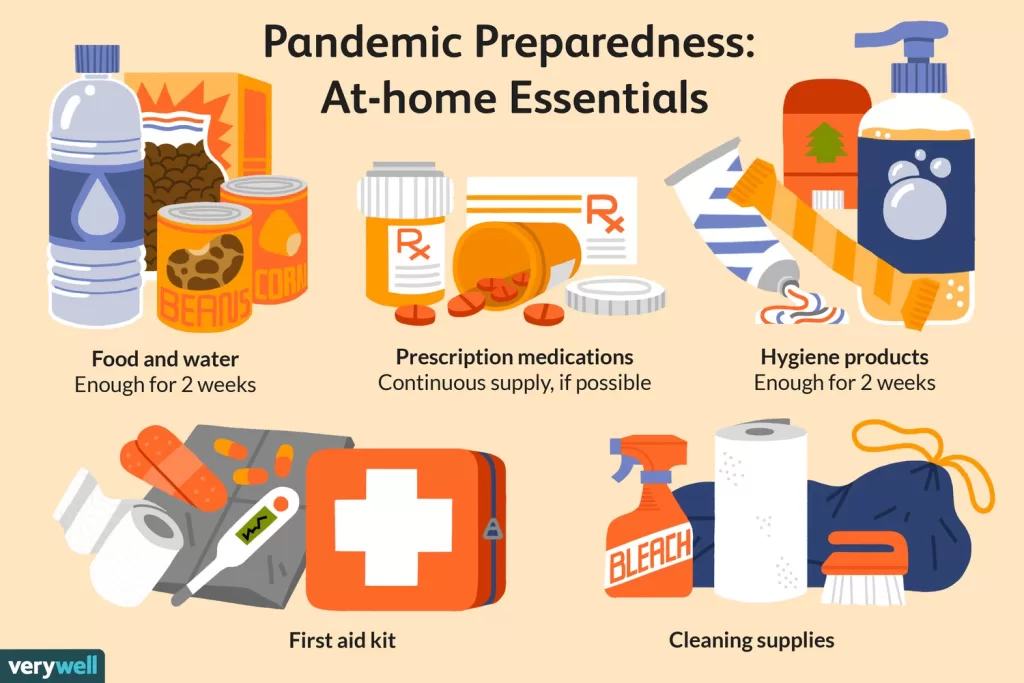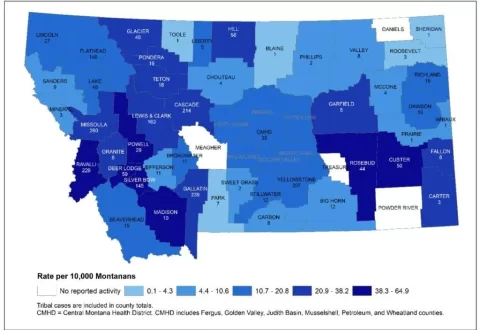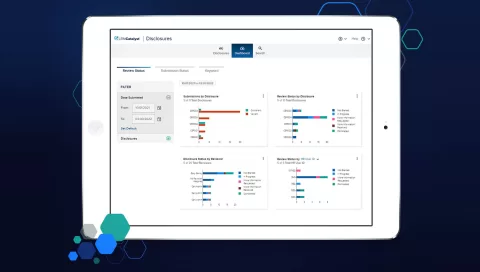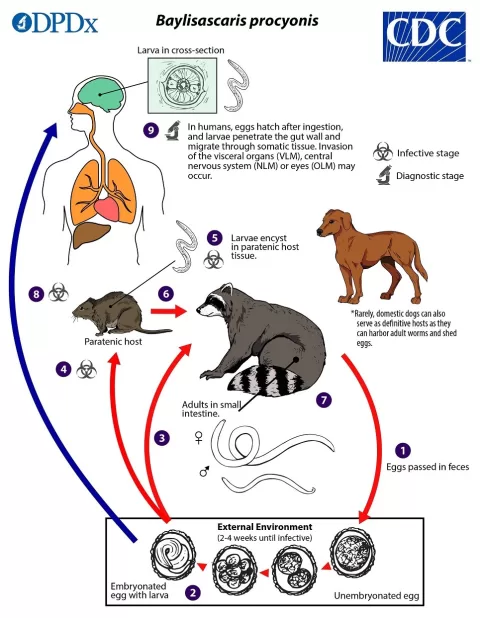Pandemic Preparedness has emerged as a critical focus in public health strategy, especially in the wake of global crises such as the COVID-19 pandemic. The appointment of Gerald Parker to lead the White House Office of Pandemic Preparedness and Response Policy signals a proactive shift towards enhancing the nation’s capabilities against future biological threats. With a robust background in One Health, Parker brings invaluable expertise as he oversees initiatives shaping the nation’s response, including the development of next-generation vaccines and treatments. His previous roles, including his tenure during the Trump pandemic response, position him uniquely to spearhead this office’s mission. As we navigate an era where infectious diseases can rapidly spread, the emphasis on pandemic readiness has never been more paramount.
In light of recent events, readiness for health emergencies, often referred to as Infectious Disease Preparedness, is essential to safeguard public health systems. The establishment of specialized agencies, such as the Office of Pandemic Preparedness and Response Policy, serves as an integral component in coordinating efforts against emerging health threats. Gerald Parker’s appointment as a key figure in this initiative highlights the government’s commitment to addressing potential outbreaks effectively. Focusing on holistic approaches, including insights from One Health experts, underlines the significance of collaborative strategies in managing zoonotic diseases. As we face the challenges posed by high-consequence pathogens, strengthening our response frameworks remains crucial.
Leadership in Pandemic Preparedness: Gerald Parker’s Role
Gerald Parker’s appointment to lead the White House Office of Pandemic Preparedness and Response Policy marks a significant step in enhancing the United States’ capability to manage health crises. His extensive experience, particularly in biodefense and global health security, positions him uniquely to address the multifaceted challenges posed by emerging infectious diseases. Parker’s leadership is anticipated to streamline federal responses and ensure a coordinated effort across agencies like the CDC and FDA, vital during pandemics such as COVID-19. His background as an associate dean at Texas A&M’s College of Veterinary Medicine, along with his military experience, further reinforces his expertise in One Health approaches, which emphasize the interconnectedness of human, animal, and environmental health in pandemic scenarios.
In his role, Parker will oversee the initiatives under the 2022 PREVENT Pandemics Act, a critical framework aiming to fortify national health readiness against biological threats. This office not only provides leadership during crises but also aims to foster long-term strategies for vaccine development and manufacturing improvements. By focusing on comprehensive preparedness strategies, the Office of Pandemic Preparedness seeks to mitigate risks associated with future pandemics, an issue that has become increasingly urgent in light of recent global health challenges.
The Establishment of the Office of Pandemic Preparedness
The formation of the Office of Pandemic Preparedness and Response Policy in July 2023 marked a pivotal shift in how the U.S. approaches health crises. Established in response to the glaring vulnerabilities exposed by the COVID-19 pandemic, this office’s mission involves not just reactionary measures but proactive strategies aimed at preventing potential outbreaks. The PREVENT Pandemics Act underpins this initiative, signaling a commitment to prioritize public health and biological safety in the wake of significant health emergencies. Parker’s leadership will be crucial as the office develops and implements strategies that encompass the entire scope of pandemic response, from research to public health policy.
This newly established office also plays a critical role in coordinating responses to outbreaks that threaten public health, such as the H5N1 avian flu, which has emerged as a concern for U.S. agriculture. By collaborating across multiple federal agencies, Parker’s office aims to facilitate a unified response that can effectively manage both human and animal health risks. The emphasis on preparedness and response within the office is a reflection of lessons learned from the Trump administration’s earlier pandemic measures, collectively enhancing the governmental approach to crisis management. This places the office at the forefront of the United States’ health security against future pandemic threats.
Trump Administration’s Health Policy Shifts: A Focus on Pandemic Preparedness
The Trump administration’s decision to appoint Gerald Parker highlights a nuanced shift in health policy during a critical time. While his selection indicates a recognition of the necessity for robust pandemic preparedness, it also raises questions about the future direction of federal health initiatives under potential future administrations. Earlier comments by Trump regarding the potential disbandment of the Office of Pandemic Preparedness suggest a complicated relationship with pandemic-related policies, indicating that political views may shape public health responses as much as health considerations themselves.
The ongoing discussions about pandemic preparedness reflect a broader debate about health leadership and strategic response in times of crisis. The appointment of a qualified One Health expert like Parker could bridge the gaps that previously existed in the pandemic response framework, emphasizing an integrated approach that transcends traditional public health silos. The successful implementation of Parker’s initiatives could reflect a necessary evolution in the way the U.S. prepares for and responds to biological threats in the years to come.
Parker’s Vision for Pandemic Preparedness
Gerald Parker’s vision for the Office of Pandemic Preparedness and Response Policy is grounded in comprehensive risk assessment and strategic planning. By leveraging his extensive background in biodefense and emerging infectious diseases, Parker aims to create a framework that not only addresses immediate health threats but also anticipates future pandemics. His focus on a One Health approach underscores the need for cross-disciplinary collaboration, ensuring that human, animal, and environmental health are treated as interconnected elements in the fight against diseases. This perspective is crucial in enhancing public health responses to complex pandemic scenarios.
Furthermore, Parker envisions a more resilient infrastructure able to respond promptly and effectively to emerging threats. This includes fostering partnerships with academic institutions and private sectors to innovate and produce next-generation vaccines and treatments. The inclusion of diverse stakeholders in the pandemic preparedness conversation is vital for developing multifaceted solutions that are sustainable and adaptable. Through his leadership, the office aims to establish not just reactive measures, but a proactive culture of health security that can withstand future challenges.
The Importance of One Health in Pandemic Preparedness
One Health is a crucial concept in understanding and managing pandemic risks, intertwining human health, animal health, and environmental factors. Gerald Parker’s expertise in this area emphasizes the importance of holistic approaches to prepare for and respond to potential pandemics. By integrating data and insights from various sectors, the Office of Pandemic Preparedness can create comprehensive strategies that consider the complexities of biological threats. This alignment is especially important in light of the COVID-19 pandemic, which demonstrated how interconnected our health systems truly are.
The focus on One Health in pandemic preparedness is not merely an academic exercise; it has real-world implications for policy, surveillance, and response strategies. Given around 60% of emerging infectious diseases are zoonotic, understanding the human-animal-environment nexus is imperative for anticipating outbreaks. Parker’s approach aims to leverage this understanding to promote greater collaboration across disciplines and agencies, thereby enhancing the overall resilience of public health systems against future pandemics. This strategic alignment will foster a coherent and effective response to the multifaceted challenges posed by infectious diseases.
Future Directions in Pandemic Response Leadership
As the new leader of the Office, Gerald Parker possesses the opportunity to shape the future of public health response in the United States. His prior experiences in various health and defense sectors equip him with the knowledge required to navigate the complex landscape of pandemic preparedness. With the Trump administration’s focus on revising policies in direct response to the challenges posed by COVID-19, Parker’s leadership will be pivotal in defining how the federal government prioritizes and manages health emergencies moving forward.
Parker’s appointment also signals a shift toward empowering experienced professionals with the authority to devise innovative solutions for health crises. By focusing on building a robust framework for pandemic preparedness, he aims to reinforce the importance of preparedness over reactionary measures. This proactive strategy is essential in mitigating the impacts of future pandemics, ensuring that the lessons learned from COVID-19 are not forgotten but rather integrated into future policies. As public health continues to evolve amidst changing global dynamics, Parker’s leadership could be instrumental in fostering a new era of pandemic response.
Impact of Governmental Coordination on Health Security
Effective pandemic response hinges on a well-coordinated approach among various governmental agencies. Gerald Parker’s role in leading the Office of Pandemic Preparedness and Response Policy will involve ensuring that collaboration occurs seamlessly among entities such as the CDC, FDA, and USDA. This unified effort is essential not only for responding to current health threats but also for laying the groundwork for a resilient health security infrastructure in the face of future pandemics. As the government addresses the complexities of emerging infectious diseases, Parker’s ability to facilitate communication and collaboration across these agencies will be crucial.
The importance of such coordination cannot be overstated; the COVID-19 pandemic highlighted the repercussions of fragmented responses. By leveraging insights from different fields and disciplines, Parker’s office aims to foster a holistic understanding of public health that surpasses traditional boundaries. This integrative approach will support the development of comprehensive strategies that can effectively tackle the biological threats of tomorrow, making government coordination a fundamental pillar for successful pandemic preparedness initiatives.
Balancing Political and Health Imperatives in Pandemic Response
Navigating the intersection of politics and public health can be particularly challenging, especially in the context of pandemic preparedness. The Trump administration’s varied approach to health issues has demonstrated that political perspectives can significantly influence health policy outcomes. Gerald Parker’s selection comes at a time when there is a critical need for leadership that balances these political realities with the science and rationale behind effective pandemic response strategies. His expertise in the field provides an opportunity to redefine the narrative around health readiness beyond political considerations.
Maintaining a focus on data-driven decision-making can help reinforce confidence in public health systems and their leaders. By steering discussions toward the necessity of preparedness and the importance of scientific insight in crafting health policies, Parker can advocate for a unified approach that prioritizes public welfare over political agendas. Ultimately, fostering a culture that emphasizes collaboration, science, and preparedness can help bridge the gap between political ambitions and the commitment required to tackle the challenges presented by future pandemics.
Frequently Asked Questions
What is the role of the Office of Pandemic Preparedness in pandemic response?
The Office of Pandemic Preparedness and Response Policy, established under the 2022 PREVENT Pandemics Act, coordinates the federal government’s response to biological threats and pathogens. It oversees the development of next-generation countermeasures, including vaccines and treatments, ensuring the country stays ready for future pandemics.
Who is Gerald Parker and what is his significance in pandemic preparedness?
Gerald Parker, DVM, PhD, is recognized for his significant contributions to pandemic preparedness as the leader of the Office of Pandemic Preparedness. His background in biodefense and public health enhances the government’s ability to respond effectively to biological threats, making him a key figure in preparing for future pandemics.
How did the Trump administration influence current pandemic preparedness initiatives?
The Trump administration’s decision to create the Office of Pandemic Preparedness and appoint experts like Gerald Parker has laid the groundwork for ongoing pandemic response initiatives. This structure aims to improve the nation’s readiness against future biological threats and reflects a commitment to enhancing public health security.
What are the recent challenges faced by the Office of Pandemic Preparedness?
The Office of Pandemic Preparedness has faced challenges like coordinating responses to the H5N1 avian flu outbreak while navigating political discussions about its future. Its effectiveness in addressing such threats is critical for sustaining public health and safety amidst ongoing health crises.
What implications does Donald Trump’s position on pandemic policy have?
Donald Trump’s commentary regarding the potential disbanding of the Office of Pandemic Preparedness suggests uncertainty in pandemic policy direction. However, his appointment of experts like Gerald Parker signals an ongoing commitment to maintaining a robust pandemic response framework, critical for future preparedness.
How does One Health expertise contribute to pandemic preparedness?
One Health expertise, as embodied by leaders like Gerald Parker, integrates human, animal, and environmental health perspectives. This approach is crucial for pandemic preparedness as it addresses the interconnectedness of epidemics, enhancing strategies for detecting and responding to emerging infectious diseases.
What is the significance of the PREVENT Pandemics Act in improving pandemic preparedness?
The PREVENT Pandemics Act, which established the Office of Pandemic Preparedness, is significant as it formalizes government efforts to enhance the country’s readiness for future pandemics, ensuring a structured approach to responding to biological threats and safeguarding public health.
What are the roles of key health agencies in pandemic preparedness?
Key health agencies, including the CDC, FDA, and USDA, play vital roles in pandemic preparedness through their collaboration in response coordination, surveillance, and ensuring public safety measures during outbreaks, which the Office of Pandemic Preparedness oversees.
| Key Point | Details |
|---|---|
| Leadership Appointment | Gerald Parker, DVM, PhD, named to lead the Office of Pandemic Preparedness and Response Policy. |
| Background of Gerald Parker | He has extensive experience, having worked in biodefense, emerging infectious diseases, and public health preparedness. |
| Office Establishment | Created under the 2022 PREVENT Pandemics Act in July 2023 to prepare for biological threats. |
| Current Responsibilities | Oversees federal response to H5N1 avian flu outbreak, coordinating multiple health agencies. |
| Future Uncertainty | Trump’s potential disbanding of the office raised questions, yet Parker’s appointment indicates a continued commitment. |
Summary
Pandemic preparedness is crucial for ensuring the safety and health of the nation against biological threats. The establishment of the Office of Pandemic Preparedness and Response Policy and the appointment of experts like Gerald Parker signify a proactive approach to combating current and future health crises. By coordinating responses to outbreaks and developing next-generation countermeasures, this office aims to enhance the country’s ability to respond effectively to pandemics.
The content provided on this blog (e.g., symptom descriptions, health tips, or general advice) is for informational purposes only and is not a substitute for professional medical advice, diagnosis, or treatment. Always seek the guidance of your physician or other qualified healthcare provider with any questions you may have regarding a medical condition. Never disregard professional medical advice or delay seeking it because of something you have read on this website. If you believe you may have a medical emergency, call your doctor or emergency services immediately. Reliance on any information provided by this blog is solely at your own risk.








